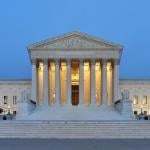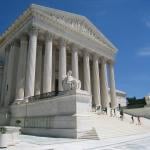In his classic The Covenant Sealed: The Development of Puritan Sacramental Theology in Old and New England, 1570-1720 , E. Brooks Holifield (who has the classiest name among all church historians) describes the oscillation of Reformed sacramental theology and practice. High views of the real presence have typically been linked to tight restrictions on access. If Christ is really presence, the fence around the table must be very high. A sacred meal has to be protected. Lower views of the... Read more
















